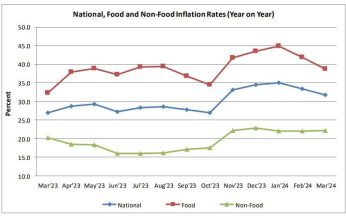Malawi set to benefit from TFTA—minister
The Ministry of Industry, Trade and Tourism says the country stands to benefit from the Tripartite Free Trade Area (TFTA) which will ease movement of goods and services and create a larger market.
In an interview on Thursday in Lilongwe, Minister of Industry, Trade and Tourism Henry Mussa said TFTA will increase intra-tripartite trade and address the socio-economic challenges facing many countries in the region.

He said: “There are several challenges that the TFTA will solve among them are high transport costs, low productive capacities, infrastructure gaps, a fragmented market and enhanced global value chains, among others.
“Agro-business is one of the sectors that has been identified for value chains in the work programme that has been approved because agriculture is important for the Malawi economy.”
Mussa said government is delighted that the tripartite framework has prioritised infrastructure development, adding that with good infrastructure connectivity, cost of doing business is reduced.
Comesa assistant secretary general Kipyego Cheluget said 20 countries have signed the TFTA agreement.
“You will note that at the launch of the TFTA, some work was still outstanding on negotiating rules of origin, trade remedies, exchange of tariff offers, legal drafting of the accompanying annexes to the agreement and movement of business persons,” he said.
Malawi Confederation of Chambers of Commerce and Industry (MCCCI) president Karl Chokotho said the TFTA is important for Malawi because it will open bigger markets and the availability of huge markets means growth for businesses.
“When businesses are trading internationally, it helps in improving quality of goods, expertise and even marketing skills which are essential in the growth of any business.
“As a country, we should take advantage of the TFTA and make full use of it since we are landlocked,” he said.
The TFTA was launched in June 2015 by the Third Tripartite Summit of Heads of State and Government after more than three years of intense negotiations.
It is anchored on three pillars, namely market integration, industrial development and infrastructure development.
The TFTA was established following the coming together of States from the Common Market for Eastern and Southern Africa (Comesa), East African Community (EAC) and the Southern African Development Community (Sadc) to remove duplication and overlaps by other countries such as Malawi, Zambia, Zimbabwe, Mauritius, Seychelles, Comoros, Madagascar and EAC.
The TFTA has a population of 600 million people and gross domestic product of $1.2 trillion. n





